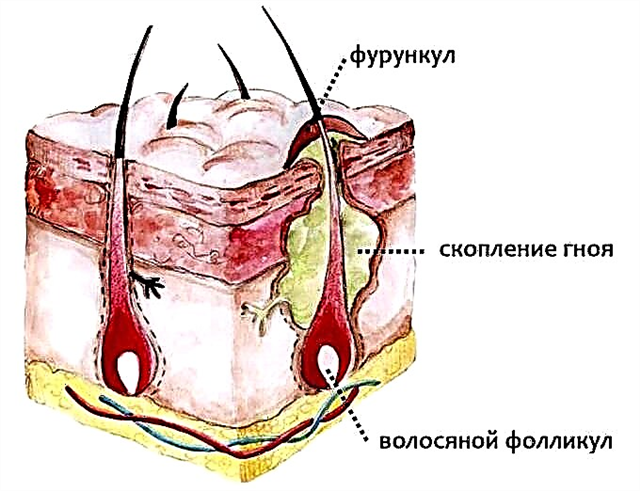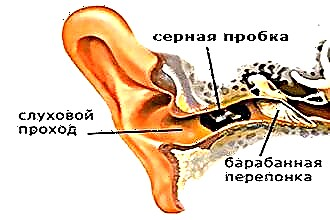Heart cough, the symptoms and treatment of folk remedies of which we will consider, most often occurs as a result of heart disease. Note that this is not an independent disease at all, but only its symptom. It is very easy to confuse a heart cough with ordinary bronchitis. Thus, a person may not suspect for a long time that the work of the heart and blood vessels has already been disrupted. Therefore, it is extremely important to contact a specialist on time.
Why arises
 If the doctor has determined that the cough is still of a cardiac origin, do not panic. Today he is being treated quite successfully. If desired, and with the permission of the doctor, you can use the recipes of traditional medicine at home. You only need medicinal herbs and some products. If you take the drugs correctly, you will get rid of such an unpleasant symptom and at the same time put in order the cardiovascular system. Treatment of heart cough with folk remedies is a non-axial and proven option for generations.
If the doctor has determined that the cough is still of a cardiac origin, do not panic. Today he is being treated quite successfully. If desired, and with the permission of the doctor, you can use the recipes of traditional medicine at home. You only need medicinal herbs and some products. If you take the drugs correctly, you will get rid of such an unpleasant symptom and at the same time put in order the cardiovascular system. Treatment of heart cough with folk remedies is a non-axial and proven option for generations.
In many cases, a cough of cardiac origin occurs when there is congestion in the lungs. This problem, in turn, occurs when the heart loses its ability to pump blood normally. Such congestions decompress the work of the heart muscle. For this reason, fluid accumulates in the lungs, which irritates the bronchi and provokes a cough.
In addition, such a cough may well be caused by diseases of the endocrine organs, addictions (smoking and excessive alcohol consumption), severe anemia, the use of certain medications for the blood vessels and the heart, as well as frequent and serious stresses.
Symptoms
A cough of cardiac origin has a number of characteristics. Thanks to them, it can still be distinguished from a cold:
- Dryness. When a person coughs, he does not separate bronchial secretions - sputum (as an option - pus or mucus). Sometimes blood can be coughing up.
- Cyanosis (cyanosis) affecting the pads of the fingers, earlobes, nasolabial triangle, or lips.
 Increased breathing. At first, only physical exertion can be accompanied by coughing and shortness of breath. However, if the disease continues to develop, a dry, lingering cough and rapid breathing can provoke even a prolonged conversation.
Increased breathing. At first, only physical exertion can be accompanied by coughing and shortness of breath. However, if the disease continues to develop, a dry, lingering cough and rapid breathing can provoke even a prolonged conversation.- Tachycardia and pain in the region of the heart due to overflow of blood.
- Fainting and previous clouded state of consciousness. These symptoms occur as a result of increased pressure in the chest and a simultaneous decrease in the volume of blood flowing to the heart.
- Distended veins in the neck on coughing.
- The onset or intensification of cough when the sick person tries to lie down. When the body is in a horizontal position, the load on the left ventricle increases. Because of this, some are forced to sleep in a half-sitting position. True, exactly the same symptom is characteristic of bronchial asthma. To make a correct diagnosis, it is necessary to carry out a differential diagnosis.
- When the disease is in its early stages, the cough is complemented by dizziness, sweating and weakness. As the disease progresses, ankle swelling appears. It is usually observed in the evenings. If the disease is already sufficiently advanced, the edema becomes denser, gains stability and does not disappear in the morning.
Types of heart cough
 A cough of cardiac origin can manifest itself in different ways. So, it happens:
A cough of cardiac origin can manifest itself in different ways. So, it happens:
- dry with irritation - at the very beginning of the disease, the systemic circulation at this time is not yet disturbed by congestion;
- dry, short and sharp, accompanied by painful sensations in the heart - this type of cough is characteristic of rheumatism with complications in the form of pericarditis;
- dry in the form of seizures associated with breathing difficulties - a sign also characteristic of mitral stenosis;
- exhausting, loud, annoying in the evenings and at night (appears mainly when a person tries to lie down) - one of the symptoms of such a pathology as chronic left ventricular failure;
- with coughing up blood - indicates advanced congestion inside the lungs and, in certain cases, thromboembolism (the reason is right ventricular failure and atrial fibrillation).
How to treat
Cardiac cough is now successfully treated with traditional medicine. Modern drugs do a good job of strengthening the heart muscle and putting it in order.
To relieve coughing fits, especially at night, doctors usually prescribe:
 vasodilator drugs;
vasodilator drugs;- cough medicine with anesthetic;
- means with a pronounced diuretic effect.
In addition to the methods of traditional medicine, heart cough can also be treated with herbal preparations, folk remedies can be used. They are distinguished by a mild effect on the heart and blood vessels and the natural normalization of their work. You can be treated yourself at home. However, in order for such therapy to be successful, it is necessary to take drugs regularly. You should also completely exclude the factors provoking the development of the disease. Let's take a few recipes as an example.
Honey-lemon elixir with garlic
To prepare this potion you will need:
- lemons - 10 large pieces;
- natural lime honey - 1 kg;
- garlic - 10 large heads.
 Pour citruses in boiling water and set to cool for a quarter of an hour. Then squeeze the juice out of them. Pour all the honey to it and pour the finely chopped garlic in advance. All ingredients must be mixed well and the resulting medicine must be poured into a glass container. Place it in a cool, dark place for 10 days (you can also keep it in the refrigerator).
Pour citruses in boiling water and set to cool for a quarter of an hour. Then squeeze the juice out of them. Pour all the honey to it and pour the finely chopped garlic in advance. All ingredients must be mixed well and the resulting medicine must be poured into a glass container. Place it in a cool, dark place for 10 days (you can also keep it in the refrigerator).
Take this remedy four times a day, a teaspoonful before meals. The course of treatment is 3-4 months - until the cough disappears completely. If you start taking this medicine early in the development of the disease, there is a chance to completely cure arrhythmias and other heart problems.
Recipe from Carpathian healers
To prepare it, you will need:
- dill seeds - 1 cup (200 ml);
- valerian root (grated) - 2 tbsp l .;
- liquid natural honey - 2 glasses.
 Grind the dill seeds and combine them with the valerian root shavings. Pour honey and a liter of boiling water into this mixture. Mix all ingredients thoroughly. It takes 3-4 days to infuse the drug.
Grind the dill seeds and combine them with the valerian root shavings. Pour honey and a liter of boiling water into this mixture. Mix all ingredients thoroughly. It takes 3-4 days to infuse the drug.
The infusion should be taken three times a day, a full tablespoon before meals. You will have to be treated for 2-3 months. If arrhythmia is diagnosed, it will take several years to drink this remedy.
Three-component collection of herbs
To prepare this infusion, you will need to take 50 g of the following ingredients:
- motherwort (grass);
- crow's feet (grass);
- lemon balm (leaves).
Mix all of the listed ingredients. Pour a teaspoon of the herbal mixture with a glass of boiling water. After this, the medicine must be insisted for half an hour.
The finished infusion should be drunk in one day, divided into small portions. It is necessary to be treated with this remedy until the cough disappears and the heart is normalized.
Five-way herbal collection
To prepare such a herbal infusion, you will need to take 50 g of the following ingredients:
- caraway seeds (seeds);
- nettle (leaves);
- knotweed (grass);
- horsetail (grass);
- bladder fucus (leaves).
Mix all the listed components. Pour boiling water over 2 tablespoons of the herbal mixture (volume - 700 ml).The medicine must be infused for about 15 minutes, then strain through a strainer or gauze.
The ready-made infusion should be taken warm three times a day about 15 minutes before meals.
Let's summarize
 It is not necessary to treat a heart cough separately, but the pathology that triggered the appearance of this symptom. Therefore, it is very important to correctly establish the diagnosis and prescribe effective treatment. This can only be done by a cardiologist after a series of examinations and tests. One has only to eliminate the arisen problem of the cardiovascular system - and the cough disappears after it.
It is not necessary to treat a heart cough separately, but the pathology that triggered the appearance of this symptom. Therefore, it is very important to correctly establish the diagnosis and prescribe effective treatment. This can only be done by a cardiologist after a series of examinations and tests. One has only to eliminate the arisen problem of the cardiovascular system - and the cough disappears after it.
So that after successful treatment a relapse does not happen, you must try to lead a healthy lifestyle, observe the principles of proper nutrition and not violate the daily routine.

 Increased breathing. At first, only physical exertion can be accompanied by coughing and shortness of breath. However, if the disease continues to develop, a dry, lingering cough and rapid breathing can provoke even a prolonged conversation.
Increased breathing. At first, only physical exertion can be accompanied by coughing and shortness of breath. However, if the disease continues to develop, a dry, lingering cough and rapid breathing can provoke even a prolonged conversation. vasodilator drugs;
vasodilator drugs;

